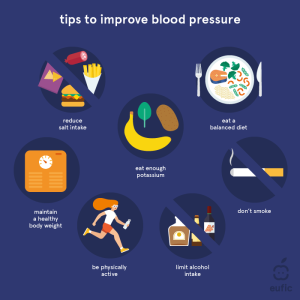In the pursuit of fitness and wellness, a truth often goes underappreciated: our plates wield more power than our sneakers.
Embracing a healthy lifestyle extends far beyond the bounds of sweaty workouts and enters the daily realms of forks and knives. For women aiming to carve a path toward a healthier self, understanding the paramountcy of diet in this journey is not just beneficial but crucial.
The undeniable reality, backed by a myriad of health institutions, underscores that an unhealthy diet simply cannot be outmaneuvered by exercise. And so, as we lace up our sneakers with vigor, let’s equally sharpen our focus on what fills our plates, exploring the intricate, indispensable role of nutrition in our health odyssey.
Discrepancy in energy expenditure
The sheer amount of effort required to burn off calories from unhealthy foods is significantly disproportionate to consuming them. A study by experts at Mayo Clinic, an acclaimed U.S. nonprofit academic medical center, elucidates that even vigorous exercise might burn only a fraction of the daily caloric intake.
To put it in perspective, running a mile might burn approximately 100 calories for most people, but a single slice of pizza can easily contain 300 calories or more. This glaring discrepancy underscores the fact that relying solely on exercise to counterbalance unhealthy eating habits is fundamentally flawed.

Nutrition as the bedrock of health
An impeccable diet isn’t just vital for weight management; it is fundamental for overall health. Nutrition plays a pivotal role in establishing a healthy foundation for your body to function optimally.
WebMD, a U.S.-based online publisher of news and information on health and well-being, emphasizes that nutritious foods bolster immune function, enhance skin health, and mitigate the risk of chronic conditions, such as heart disease and diabetes, thereby highlighting that dietary choices permeate every aspect of our health.
Emotional weight of food choices
Our food choices aren’t merely physical; they carry emotional and psychological weight too. A review by Healthline, an online platform for health information, emphasizes the clear link between diet and mental health. An unhealthy diet, often high in sugars and fats, not only impacts our physical health but is also implicated in mental health issues like depression and anxiety.
Exercise and diet
 Striking a sustainable balance between a nutritious diet and consistent exercise is pivotal.
Striking a sustainable balance between a nutritious diet and consistent exercise is pivotal.
Harvard Health, a publication of Harvard Medical School, accentuates the role of physical activity in maintaining cardiac health, improving mood, and reducing the risk of chronic diseases.
Exercise and diet should not be seen in opposition or as a trade-off but should be harmoniously interwoven into daily life to yield a holistic health impact.
Practical strategies
Borrowing a leaf from pragmatic strategies can pave the way to blend nutritious eating and physical activity seamlessly into your lifestyle. Utilize technology, like health tracking apps, to keep a tab on your nutritional intake and physical activity. Engage in meal planning and prep to circumvent reliance on unhealthy, convenient food options. Make physical activity an enjoyable and integral part of your day, whether through dance, yoga, or a brisk walk in nature.
Holistic approach to health
Investing in a balanced diet, enriched with fruits, vegetables, lean proteins, and whole grains, while simultaneously integrating regular exercise into your routine, unlocks the gateway to not just physical, but comprehensive health and well-being.
The synchronization of mindful eating and physical activity stands out not as a trend but as a timeless, proven approach to ensuring that your path towards a healthier, fitter self is not only effective but also sustainable and enjoyable.
Note: Engage with the most up-to-date information directly from the referred health sources as data and recommendations evolve. The specifics provided here are accurate up to the last training data in September 2021 and are utilized for illustrative purposes.


